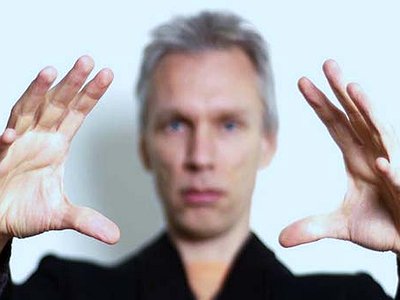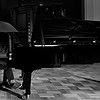Part 2
There are many descriptions of the ideal state of mind for being creative. What is it like for you? What supports this ideal state of mind and what are distractions? Are there strategies to enter into this state more easily?
The only thing you really need to have and feel is time. For the work in the beginning there is no recipe; distractions can just as well be catalysts and what supports you can at some point become an obstacle. In the later stages of course focus is more important, but also here sometimes a period of distance is needed
How do you make use of technology? In terms of the feedback mechanism between technology and creativity, what do humans excel at, what do machines excel at?
For me technology is a source as well as a tool. I use it to collect or generate material and I use it to edit material according to what the ear hears. In that respect it is an extension of consciousness trying to navigate and take into account the sounds of the world.
Collaborations can take on many forms. What role do they play in your approach and what are your preferred ways of engaging with other creatives through playing together or just talking about ideas?
Collaborations expand my musical world. They happen because there is a common mentality and a compelling idea. In the process you bring your own skills, materials and intuitions to the table and I try to keep things open as long as possible. Talking, playing or both, I prefer to talk about non musical ideas and the playing is without any preconceptions of the result.
How is preparing music, playing it live and recording it for an album connected? What do you achieve and draw from each experience personally? How do you see the relationship between improvisation and composition in this regard?
At the moment for me composing often means recording, but I try to keep my compositions open, fluid and flexible. So for a live set I prepare and set up my materials in such a way that I can decide in the moment how I line them up, how I mix them and what I could add. With this flexible setup I can react to the space where I play instead of hanging on to a recorded version. Playing live for me is a more intense and physical experience. Creating a recording for a release is about a different listening situation where the space is more abstract but the amount of detail greater.
How do you see the relationship between the 'sound' aspects of music and the 'composition' aspects? How do you work with sound and timbre to meet certain production ideas and in which way can certain sounds already take on compositional qualities?
Sound is in a way something composed by the ear. Deciding on your sounds, found or not, is part of the composition-process, whether you're the composer or the performer.
Our sense of hearing shares intriguing connections to other senses. From your experience, what are some of the most inspiring overlaps between different senses - and what do they tell us about the way our senses work? What happens to sound at its outermost borders?
Sounds can seem to have a colour, to taste, smell or feel a certain way, but for me those are associations that happen individually. There are no fundamental correspondences. The more interesting thing for me is where the score comes in, what it employs as notation, how it maps the spatial onto time.
Art can be a purpose in its own right, but it can also directly feed back into everyday life, take on a social and political role and lead to more engagement. Can you describe your approach to art and being an artist?
There is a third possibility: for me art is a way of life really, everything is at stake. Believing art can be a purpose in its own right or an envelope carrying a message of engagement for me actually borders on nihilism, because the envelope in both cases is meaningless. Art produces truths that only art can generate.
It is remarkable, in a way, that we have arrived in the 21st century with the basic concept of music and performance still intact. Do you have a vision of music and performance, an idea of what they could be beyond their current form?
If by this basic concept is meant the hierarchical line composer-score-musician-listener, I don't agree. There are already quite a lot of forms where these positions are becoming interchangeable or starting to disappear. There is no such thing as a current form anymore and I don't think there should be one. I like this multiplicity, as long as people are staying true to their idea.






